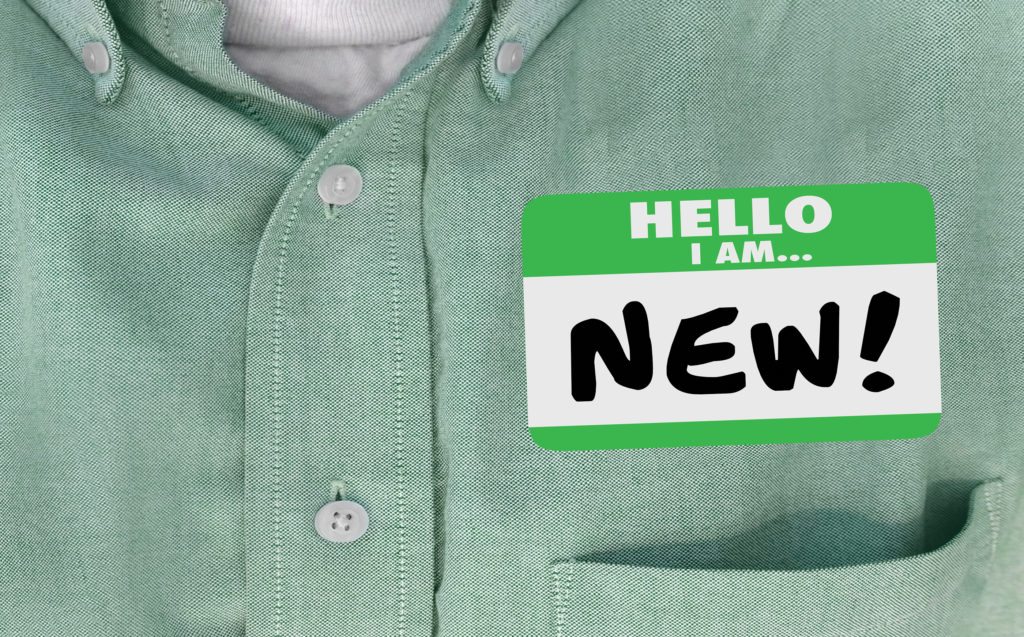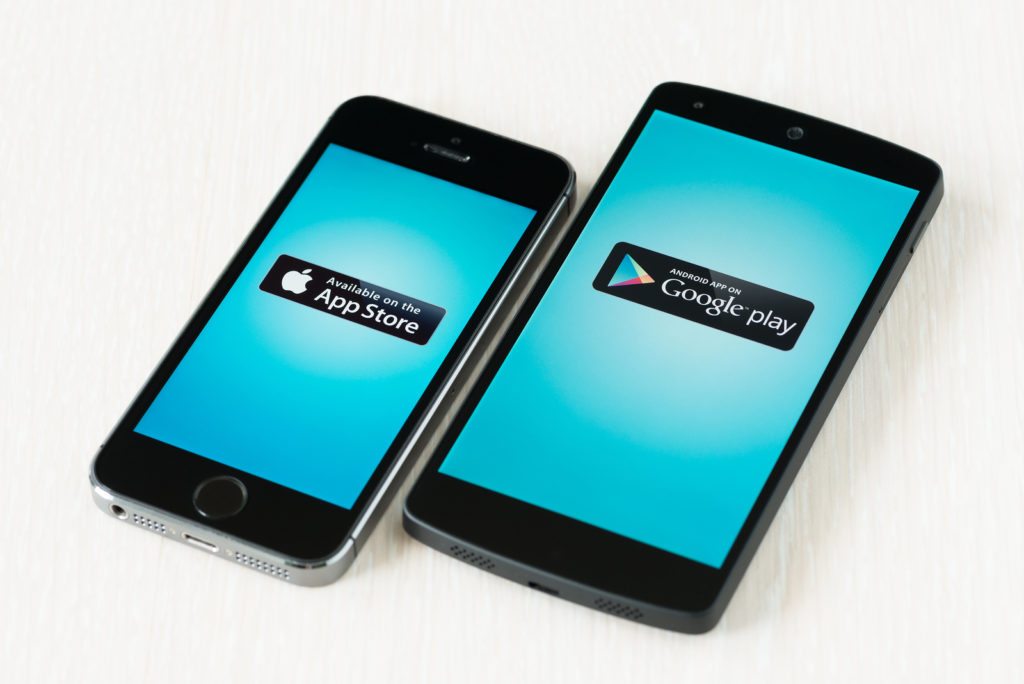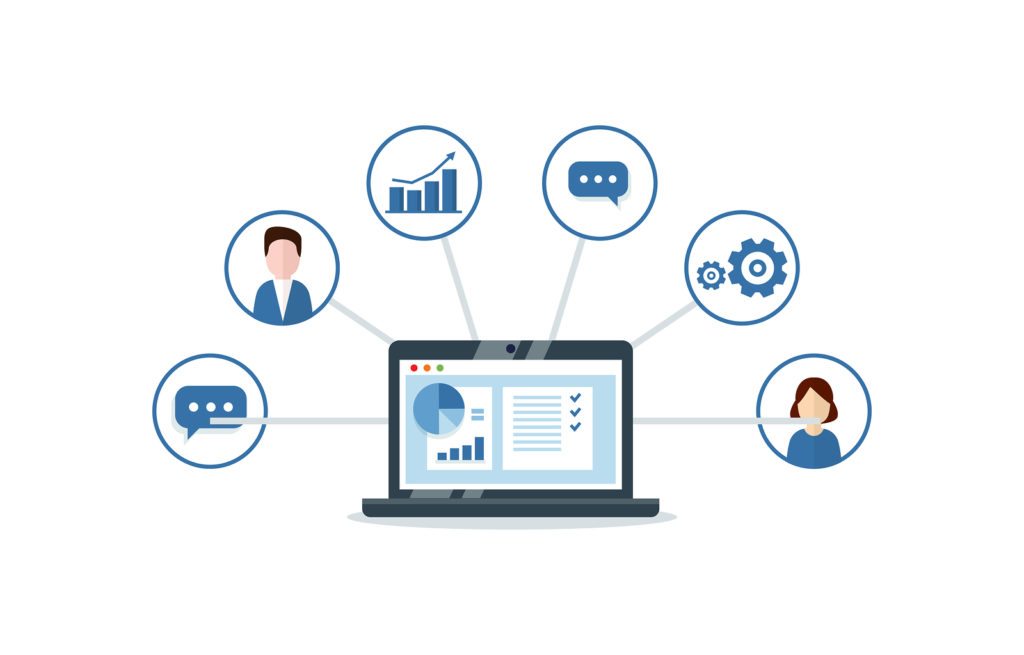
While many successful real estate agents began their businesses with little money, real-estate-on-a-shoestring is neither advised nor comfortable. In fact, beginning with several essential real estate tools is, well, essential!
Sure, licensing and joining the various associations takes a huge chunk of money, but the out-of-pocket expenses don’t end there.
You now own a business and, like all business owners, you’ll require capital to get started. Certain systems, tools and supplies may be provided by your broker but you’ll be the one shelling out the cash for the ones you need the most.
Ideally, you’ll start your business with the following common yet essential real estate tools. If that’s not possible, plan on going shopping sometime between hanging your license and receipt of your first commission check.
They’ll not only make your work life a lot easier, but they’ll help you generate new business as well.

1. Smartphone
It’s hard to believe that there are some people roaming the earth who aren’t connected to a smartphone. Not many, mind you, but we hear tell that they do exist.
If you’re among them, make the investment in a smartphone as soon as possible. It’s the one tool you’ll use more than any other in your real estate practice. This may be the most important element of these essential real estate tools.
Not only is a mobile phone important for being able to respond to leads quickly, but the “smart” aspect of it allows you to accomplish a lot of tasks remotely.
“I have about 60 Android apps on my new phone, and I use 10 of them on a daily basis, including Twitter and Facebook,” St. Paul, Minnesota agent Theresa Boardman writes at Inman.com.
Warning: Choosing which platform will be the hardest part
Despite Android claiming the title of the world’s most popular operating system, more than half of REALTORS® use the Apple iPhone®, according to the NAR, but you’ll find a good share of Android
claiming the title of the world’s most popular operating system, more than half of REALTORS® use the Apple iPhone®, according to the NAR, but you’ll find a good share of Android fans as well (45 percent).
fans as well (45 percent).
Don’t let popularity be your benchmark, when deciding on a platform. Talk to agents in your office about why they chose the OS they did.
While a smartphone’s features are critical when making the decision on which to purchase, the types of apps it can run and their ease of use is important to consider as well.
Android gets the award for the sheer number of apps (2.8 million, as of March of this year) but the Apple Store isn’t too far behind with 2.2 million apps on offer.
gets the award for the sheer number of apps (2.8 million, as of March of this year) but the Apple Store isn’t too far behind with 2.2 million apps on offer.
Which apps will you need the most?
Ask your colleagues and you’ll get a variety of answers, but those we’ve spoken with say the must-have, basic apps for the rookie are:
- Microsoft OneNote (for Android and Apple) or Evernote (for Apple and Android) for note-taking.
- Remember the Milk, 24Me or similar personal assistant apps
- Karl’s Mortgage Calculator (available for Android and Apple devices; free) can help you whip out a quick estimate of a buyer’s “monthly payments on a property given the principal, interest, and loan terms,” according to Reut R. Cohen, at Inman.com. Quicken also offers one for Android and Apple.
- Your most-frequently used social media app
- Maps, so you don’t get lost. Google Maps and Waze are the most popular, with the latter offering humor along with your directions.
- Personal safety apps are, unfortunately, a must. Check out RealAlert or check out the list at missourirealtor.org.
Can you hear me now?
Compare the audio quality on speakerphone and Bluetooth since you’ll most likely be using the phone a lot while driving (if it’s legal in your area) and audio quality can vary greatly between phones.
In the beginning of your career you’ll probably rely on your phone to take photos (please hire a pro when you can afford to), so ensure that the photo and video display and resolution are what you need.
Again, the techies at your office will more than likely be happy to share their opinions on this with you.
From adding contacts on the fly to mapping and navigation, you’ll find a smartphone to be your most valuable tool.

2. CRM
From day one in your real estate career you’ll be hitting the ground, drumming up business. Unless you plan on going through piles of scraps of paper to keep track of all the contacts you’ll make, you need a customer relationship management system.
Used for a number of tasks – from automating some of your marketing to keeping track of your sphere, your prospects and clients (past and present) – a CRM system is invaluable.
Look for a CRM that offers property blasts, email templates and the ability to monitor client activity on your website. In fact, you can’t go wrong with any of the CRM solutions we list here.
It’s not enough to own a CRM, you need to learn how to use it
We walk you through how to get the most from your CRM here.
If you’re on an extremely tight budget you might want to start with what the NAR calls “no-frills electronic address books,” such as Outlook and Apple Address book.
You won’t get the integrated solutions that you will with the higher-end systems, but at the very least, you’ll get your contacts organized.

3. Website/Blog
“My website – I call it my hub for my business. It truly is the engine that makes my business run,” says Pittsford, NY mega-agent Kyle Hiscock
He goes on to remind agents that their websites aren’t just for lead generation, but also offer exposure for listings, buying and selling information for potential and current clients, a platform to demonstrate your expertise and more. Websites may be the most essential real estate tools.
Sure, your broker may offer you a page on his or her company website, but
get your own website, with your branding
The most important features in a real estate website include:
- Mobile optimization
- Local IDX
- The ability to integrate with your CRM
- Lead capture capabilities
- Google-friendly
Some of the bells and whistles that are nice to have include done-for-you blogging, automatic text follow-up and visitor tracking.
If that sounds suspiciously familiar, it should – it describes Easy Agent Pro websites, which we just happen to think are the best investment you can make in your real estate business.
As you consider which tools you’ll need to get started in real estate, don’t skip the free stuff. Set up a Facebook page, Twitter page, Google Plus page, LinkedIn — these are all places where consumers will look for you before hiring.
Then, to hit the ground running, check out our video for new and relocating agents.
Help a rookie out: what tools do you wish you would’ve purchased on day one?
The post 3 essential tools for the rookie agent appeared first on Easy Agent Pro.
from theokbrowne digest https://www.easyagentpro.com/blog/3-essential-real-estate-tools-rookie-agent/
No comments:
Post a Comment